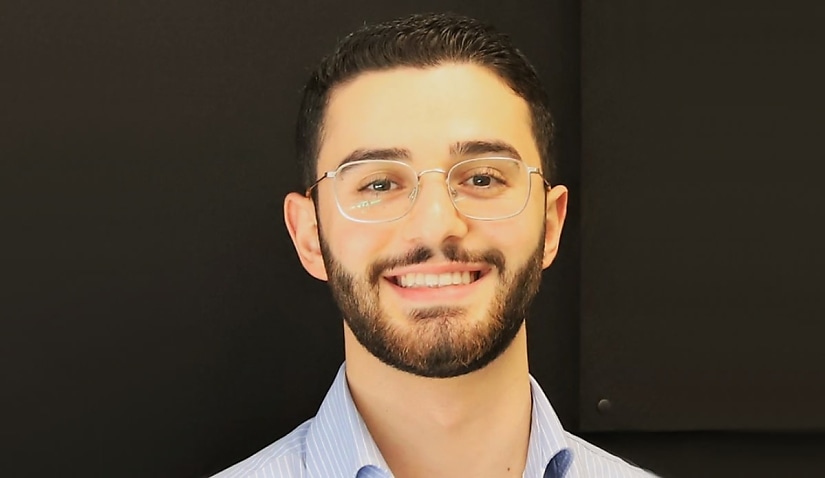Powered by MOMENTUM MEDIA
To crib Winston Churchill, in-house lawyers should never waste a good crisis. Coming out of the COVID-19 pandemic, there are myriad lessons for how corporate legal teams can manage crises if and where they arise, says one award-nominated lawyer.

Speaking recently on The Corporate Counsel Show, ACE Contractors group legal counsel Omro Alansari – who was a finalist in the construction and real estate category at the 2023 Corporate Counsel Awards – reflected on the importance of being “crisis-ready”, particularly against the backdrop of a market that remains volatile.
“In the very best case, that’s simply just challenges that we can manage and overcome. And in the worst case, you’re talking about insolvency, and that’s not a place that anyone wants to get to,” he listed.
As a legal counsel in the construction space, he explained, he has become accustomed to being on crisis footing since the onset of the global pandemic.
In that sector, he detailed, fixed-price contracts are proving challenging in an environment where costs are going up across the board.
“Just to use one example, everyone can understand and feel the pressure of petrol and diesel going up at the bowser. Now, just imagine multiplying that by thousands of leaders a day and being fixed into your price for the contract. Likewise, in terms of materials, it does seem like material suppliers do have quite a lot of power with respect to setting their prices. And so, when they go up, that has an impact. And, of course, labour, wages, finance, and insurance costs to others,” he said.
So, Mr Alansari said, “although we’re seeing a little bit more collaboration and early involvement in terms of contracting and sharing those pains and gains, most contracts are still traditional and deal with risks in a traditional way”.
“That’s the really challenging market that we had right after COVID-19, where there was lots of demand, lots of work, lots of contracts in the same traditional way, with costs and prices going up,” he said.
As an in-house counsel, he noted, it has been critical to be nimble and dynamic, and build good relationships with both the business and client.
Corporate legal should not, Mr Alansari stressed, try to reinvent the wheel when it comes to navigating a crisis period.
For the aforementioned crisis, he said, it ultimately comes down to how one subcontracts to suppliers and communicates with the client.
Moreover, it is imperative to be honest and open “to the extent you can”, follow contractual processes “almost fearlessly”, and – at the end of the day – recognise that, commercially, the current age is creating a difficult climate for all stakeholders.
Mr Alansari was reminded of Winston Churchill’s edict to never waste a good crisis.
“I think that there are many lessons to be taken from COVID-19, and we haven’t quite gotten through the inflation crisis yet, but there will be lessons from that too. Perhaps it’s not great news to hear, but there will always be another issue,” he said.
“The world is getting more complex and complicated, and therefore businesses have to navigate that climate. I think we can see that there are probably some issues on the horizon, and I hope they don’t get to the point of crisis, but there will be issues such as cyber security and data privacy that in-house counsel are already working on and will have to work on.”
In his particular sector, Mr Alansari went on, insolvency will always be a possibility and, therefore, a risk when it comes to fixed price contracts in an inflationary market.
“For other participants in that market about insolvency, it is about managing and monitoring our peers and partners with key indicators, structuring the way we build and work with other parties, and being realistic in terms of insurance, and you may have to self-insure,” he advised.
“In the construction industry, there is also something of a skills shortage. Obviously, migration took a hit with COVID-19, and it is coming back now, and there was lots of demand in the market that was sucked up. So, ensure that both your client and the other side have the capacity and capability to do the job that we set out to do in the contract and as per the deal.”
At the end of the day, Mr Alansari said, being crisis-ready means that in-house lawyers should strive to be “that calm voice of reason”, as well as being “that expert with authority and being able to provide a perspective and an insight on a matter can really help the key decision-makers make the best possible decision for themselves and the business”.
It will also be necessary, he added, for corporate counsel to remove their ego from the equation and get comfortable with not always being the expert in the room.
Seeking support and input from external providers wherever one can, and not feeling the need to know everything so that one can properly heed advice from all corners, will be critical, he said.
The transcript of this podcast episode was slightly edited for publishing purposes. To listen to the full conversation with Omro Alansari, click below:

Jerome Doraisamy is the managing editor of Lawyers Weekly and HR Leader. He is also the author of The Wellness Doctrines book series, an admitted solicitor in New South Wales, and a board director of the Minds Count Foundation.
You can email Jerome at: